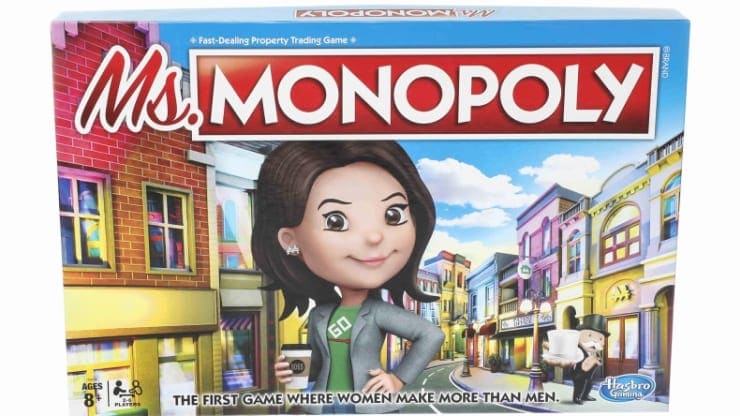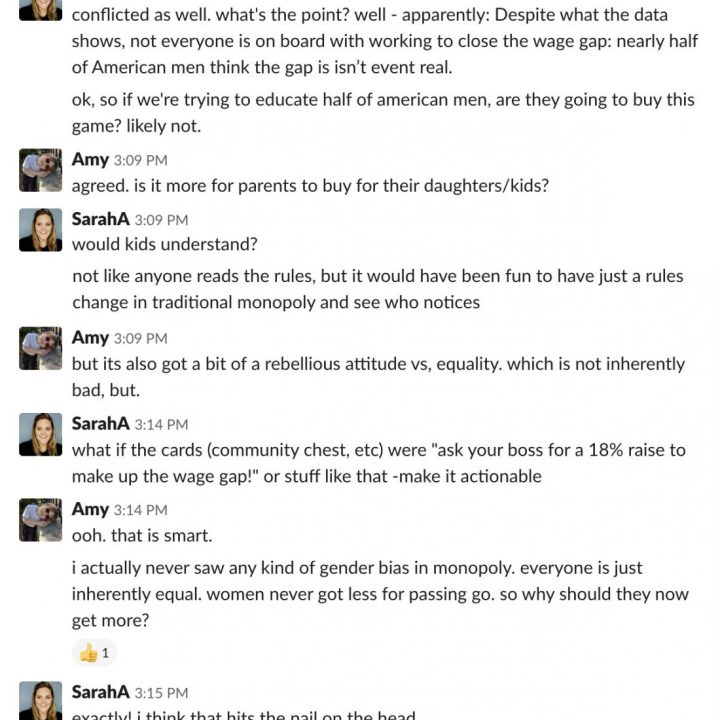
“WHAT GIVES?”: Fun and Games with Feminism
We all know Cause Marketing is a hard nut to crack.
Sometimes, brands’ efforts and intents are in the right place, but the execution misses the mark—there’s no clear call to action for consumers to get involved with the issue or organization, or no concrete way to measure impact beyond social media conversation and impressions.
Other times, it’s even worse–you can blatantly see that the brand has no real connection to the cause, and the whole dog-and-pony-show is just a brand or agency push for awards recognition. Not to mention that in many cases, the amount of $$ spent on the campaign (or promotion of it) could have been much better served going to the org or issue itself.
Today’s featured effort is a little different: it falls into neither of these categories. Some folks may not even consider it Cause Marketing since there’s no clear organization partnership as part of it the initiative (which is a problem all on its own), although it is definitely a brand making a statement about a hot button social issue.
It got a bunch of us at Media Cause talking last week. So we wanted to share it with you, too.
The Suspect: The new Ms. Monopoly game from Hasbro

The Intent: To “spark conversation”
Despite all of the proof that women categorically make less than men for the same positions and work, according to a recent survey, 38% of Americans think the gender pay gap is made up to serve a political purpose.
Hasbro, jumping into the cultural Zeitgeist, is aiming to create more conversation around the issue in homes everywhere by revamping its classic financially-driven game to give women an edge and celebrate their modern “empowerment.”
The Approach: New rules, same game
Essentially, Hasbro rewrote the rules and playing context of Monopoly to be “The first game where women make more than men.” Here’s what they’ve changed:
- Money: Female players get $1,900 in Monopoly money at the start of the game vs. $1,500 for each male player, and get $240 each time they pass ‘Go’ vs. $200 for the men.
- Investments: Instead of buying properties, players invest in female created inventions throughout history (I had no idea Wifi was invented by a woman, so pretty cool on that one)
- Game pieces: So long battleship and racecar (because, of course, there are no women in the Navy or in professional racing). Hello, notebook and pen (because don’t women always take the notes in a meeting?), a jet, and a watch (yup, accessories).
The Impact: Well…
That’s stellar question. I’ll share with you a little MC internal exchange we had about this last week, as I was feeling somewhat conflicted about it:

SO WHAT GIVES?
To me, this isn’t totally black and white. Should more mainstream brands and products be taking steps to address major social issues? Absolutely. Is it a good thing that Hasbro wants to (potentially) teach kids about gender equality at a young age? Sure. But does changing the rules of Monopoly (which were not biased or broken in the first place) really accomplish that? Will it even be a conversation starter a week from now? Mehhhh.
Jimmy Kimmel agrees.“Playing monopoly, or any board game, is one of the few places in life where discrimation doesn’t exist. It’s not like boys are better at rolling dice.”
How could they have approached this differently?
Well, for starters, let’s think about impact. It goes back to what the goals of creating Ms. Monopoly were, and maybe what they should have been instead.
If PR coverage was the goal, then Hasbro gets a big check mark for that (also worth noting that in recent weeks, there’s been some controversy around Monopoly Socialism and Monopoly for Millenials).
If starting a genuine social conversation was the goal, they probably should have done a little more research on what equality and empowerment really mean. It’s not about making the playing field lopsided in the opposite direction. It’s about giving everyone the same chance to succeed (which, as I have mentioned, original Monopoly kinda already does).
One interesting suggestion that came up on our team was to create a parody game where the rules enable men to earn more than women—let everyone freak out about it—and then reveal that it was a stunt to draw more powerful parallels to real life. THAT would get people talking.
And if tangible social impact was the goal, why aren’t proceeds from the sales of the game going to organizations that advocate for gender equality and equal pay?
There’s a lot to consider here. As a mom of two kids, I will not be buying Ms. Monopoly for them, because I want my daughter to know that she deserves to be treated as an equal in all aspects of life–not that she needs a freebie headstart in anything for being female.